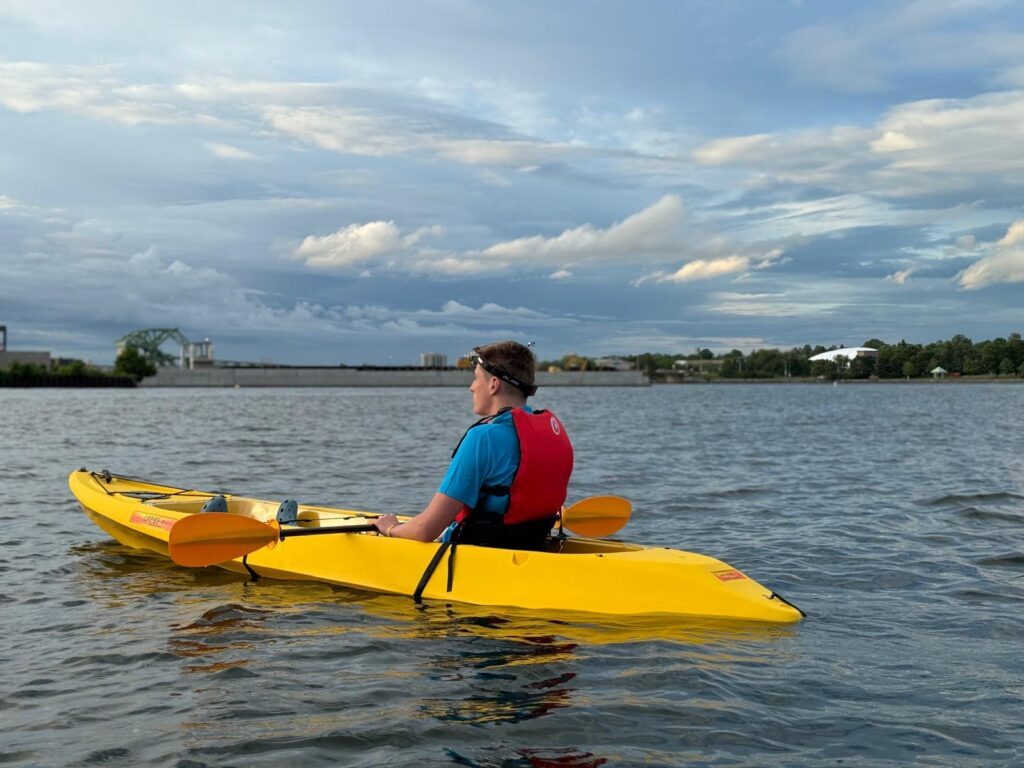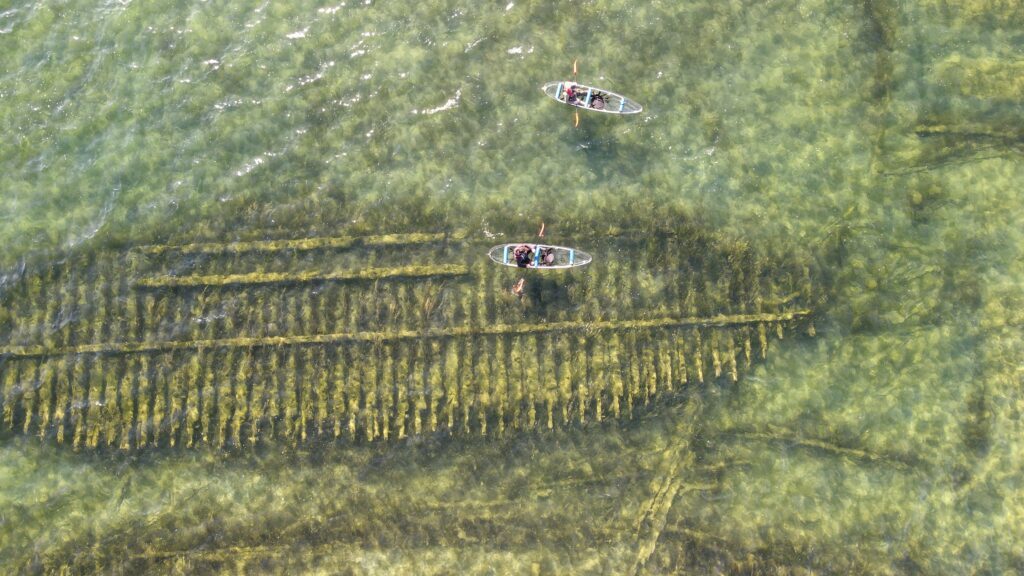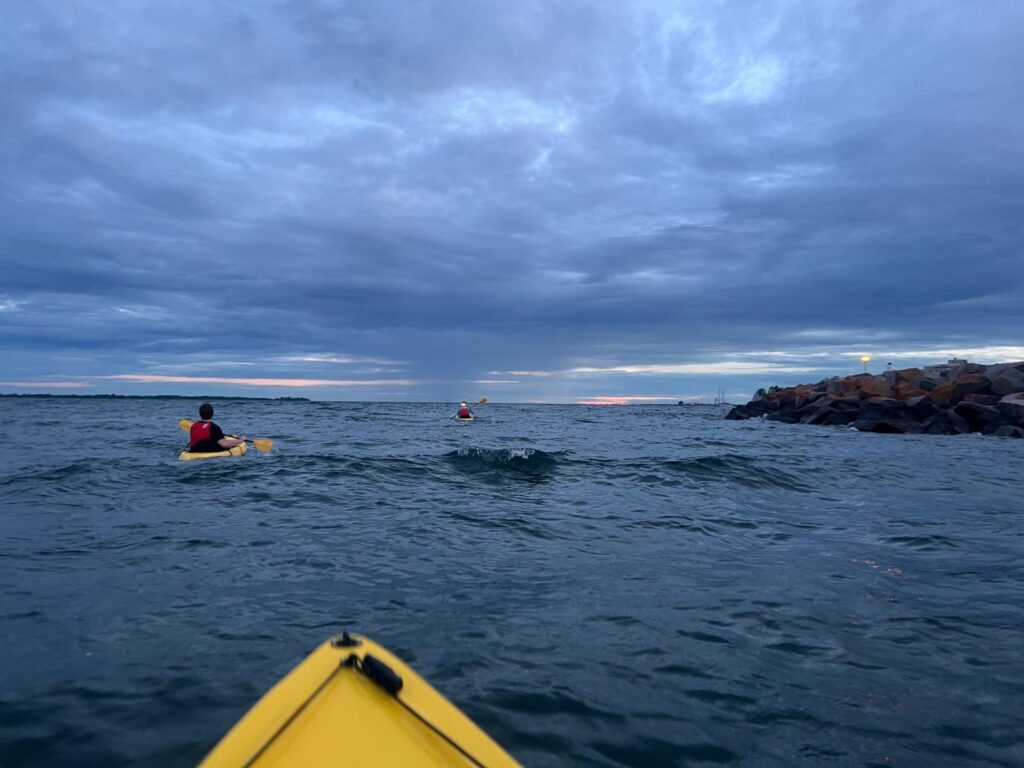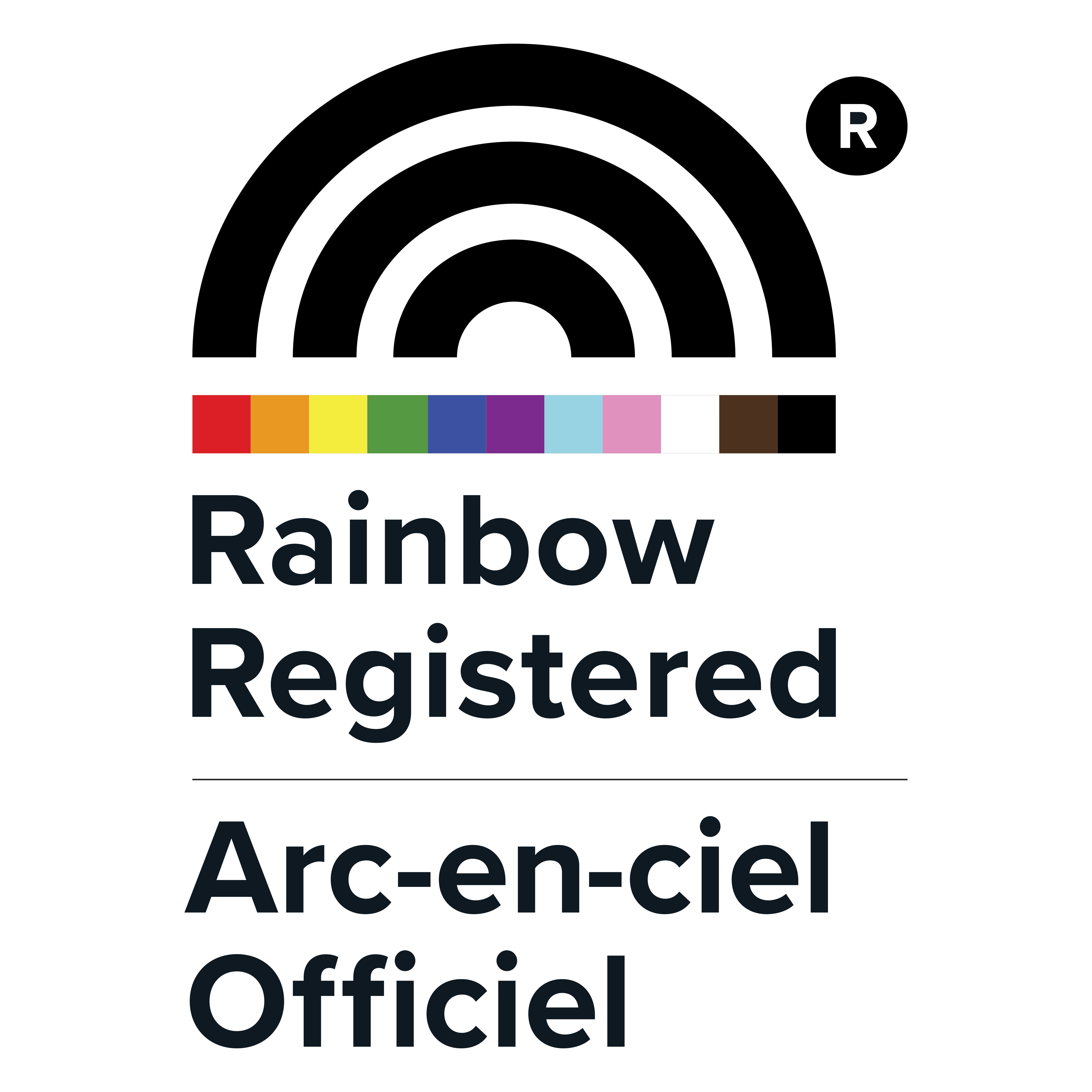This summer, you can gain a whole new perspective of Kingston’s underwater landmarks and history — on a guided kayak tour.

With over 20 years of experience in water-based adventure tours in British Columbia, Thunder Bay, and the Caribbean, Blue World Marine Adventures delivers an unparalleled experience of Kingston’s waterfront on their Garden Island Ship Graveyard Tour.

Starting at Portsmouth Olympic Harbour with a tour guide and 11 other passengers, you’ll step aboard Blue World’s pontoon boat for a 15-minute ride to Garden Island. As the wind and the spray of river water hits your face, tour guides will discuss Kingston Penitentiary, Isabel Bader Centre, and the history of Kingston’s tenure as the former capital of Canada.

Another boat, equipped with clear-bottom kayaks, will meet you at Garden Island. After your guide walks you through the safety brief, you’ll hop into your kayak and paddle out to the shipwrecks, visible through the clear blue waters surrounding Garden Island.
Having to traverse the Great Lakes’ rough waters, it’s no surprise that over 20 ships went down in the St. Lawrence River near Kingston.
Artifacts in Kingston’s underwater museum include the HMS Hercules, which met a fiery demise after an unfortunate incident in its boiler room; the HMS Prince Regent, which sank after encountering a particularly ferocious storm; and a little steamship known as the Comet, whose tumultuous and deadly history will be detailed by your tour guide.
Surprisingly, ships around Garden Island were purposely sunk by the toiling employees who used the vessels as piers and breakwaters.
History of Garden Island
From the confines of the small island, Delino Dexter Calvin created a timber-rafting empire.
Calvin was an American businessman whose eye was caught by Garden Island due to its prime location on the St. Lawrence River. Seeing this as the perfect opportunity to further his career building timber rafts, Calvin moved to Kingston in 1836.

The small, gun-shaped strip of land near Wolfe Island soon became the place for timber-rafting, with Calvin at the helm of operations. He became known as the “Governor” for his role in advancing the business endeavour and the island was subsequently outfitted with a smith’s shop, a sail loft, and a planing mill.
Garden Island was more than just the hub of Kingston’s lucrative timber-rafting business–it was an intimate community. At its peak, Garden Island was home to 750 people.
Calvin moved his entire family to the Island and equipped it with a post office, general store, library, school, and even its own currency. The school in the area was particularly impressive, boasting highly qualified teachers and accommodating up to 150 students.
Calvin soon gained prominence beyond Garden Island, fraternizing with prominent politicians and joining the provincial government in 1868. He died in 1884 at the age of 86.
While Garden Islands is not the booming business centre it once was, it’s still an important part of Kingston’s history as a 19th-century economic and political mecca.





















